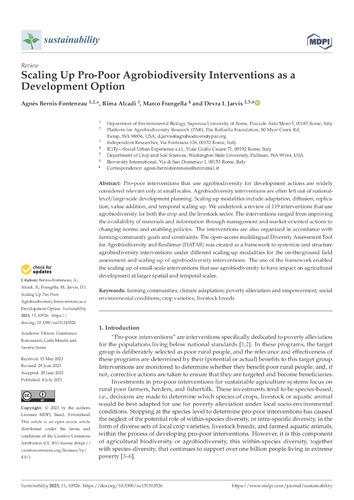Scaling up pro-poor agrobiodiversity interventions as a development option
Pro-poor interventions that use agrobiodiversity for development actions are widely considered relevant only at small scales. Agrobiodiversity interventions are often left out of national-level/large-scale development planning. Scaling-up modalities include adaptation, diffusion, replication, value addition, and temporal scaling up. We undertook a review of 119 interventions that use agrobiodiversity for both the crop and the livestock sector. The interventions ranged from improving the availability of materials and information through management and market-oriented actions to changing norms and enabling policies. The interventions are also organized in accordance with farming-community goals and constraints. The open-access multilingual Diversity Assessment Tool for Agrobiodiversity and Resilience (DATAR) was created as a framework to systemize and structure agrobiodiversity interventions under different scaling-up modalities for the on-the-ground field assessment and scaling-up of agrobiodiversity interventions. The use of the framework enabled the scaling up of small-scale interventions that use agrobiodiversity to have impact on agricultural development at larger spatial and temporal scales.

